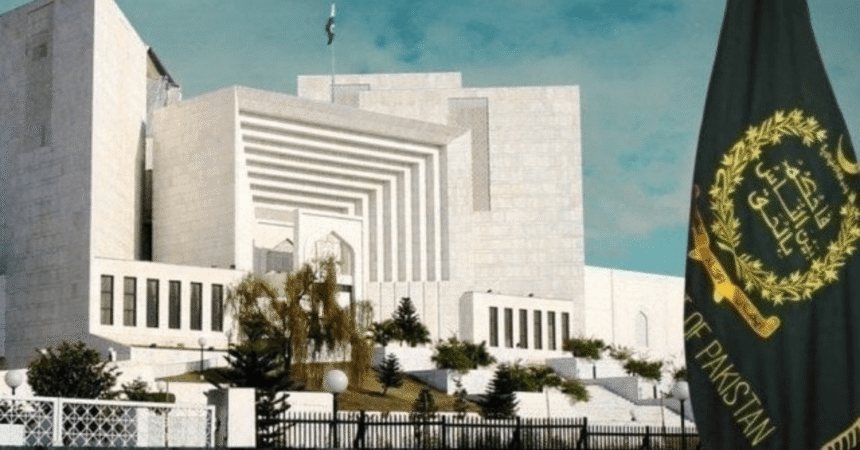Introduction
In a significant development, the Supreme Court Bar Association of Pakistan (SCBAP) has expressed profound concern over the recent amendments to the Supreme Court Practice and Procedure Act 2023. The amendments, enacted through an ordinance signed by President Asif Ali Zardari, have been met with fierce criticism from the legal community. This article explores the implications of these amendments, the responses from the SCBAP, and the broader context of judicial independence and constitutional rights in Pakistan.
Background of the Amendments
The Supreme Court Practice and Procedure Act 2023 was designed to enhance judicial independence and ensure access to justice for all citizens. It established specific protocols for the formation of benches and the handling of suo motu cases, granting greater authority to the judiciary. However, the newly introduced ordinance has altered these provisions, reducing the Chief Justice’s authority over bench formations and complicating the judicial process.
Key Changes in the Ordinance
The most critical amendments include:
- Reduction of Chief Justice’s Authority: The Chief Justice of Pakistan (CJP) now heads the committee responsible for bench formation but can appoint any other judge as the third member, undermining the previously established seniority-based system.
- Right to Appeal: The ordinance expands the right to appeal against judgments made under Article 184(3), allowing a broader range of cases to be contested.
- Urgent Matters Protocol: Cases will now be heard on a first-come, first-served basis, unless specific criteria for urgency are met, which could lead to delays in critical matters.
- Transparency Requirements: Benches must explicitly state the public importance of the issues they address in their decisions, adding another layer of complexity to judicial processes.
SCBAP’s Reaction
The SCBAP, led by President Muhammad Shahzad Shaukat and Secretary Syed Ali Imran, has strongly condemned these amendments. They characterized the ordinance as a “direct insult” to the legal community’s efforts to uphold judicial independence. In a press release, the SCBAP highlighted the following concerns:
Threats to Judicial Independence
The SCBAP warned that the amendments pose a serious threat to the judiciary’s independence. They believe that the changes reverse the progress made under the 2023 Act, which had enhanced transparency and public trust in the judicial system. The association emphasized that the amendments are “detrimental to the Constitution” and compromise the fundamental rights of citizens.
Growing Tensions Between Institutions
The SCBAP expressed grave concern over the escalating tensions between the Parliament and the Judiciary. They warned that if both institutions do not exercise restraint, the consequences could derail Pakistan’s democratic framework. The association called for all stakeholders to uphold the sanctity of the Constitution and safeguard judicial independence.
Appeal for Restraint and Dialogue
The SCBAP urged all involved parties, including government officials, parliamentarians, and members of the judiciary, to engage in constructive dialogue. They stressed the importance of resolving differences without compromising the integrity of Pakistan’s legal and democratic institutions.
The Importance of Judicial Independence
Judicial independence is a cornerstone of any democratic society. It ensures that courts can operate free from external pressures and influences, allowing them to uphold the rule of law and protect citizens’ rights. In Pakistan, where political tensions often spill into judicial matters, maintaining this independence is crucial for ensuring justice.
Historical Context
The struggle for judicial independence in Pakistan has a long and complex history, marked by periods of martial law and political upheaval. The judiciary has often been seen as a battleground for power struggles between different branches of government. The original Supreme Court Practice and Procedure Act was a step towards fortifying the judiciary’s role in protecting constitutional rights and ensuring access to justice.
Implications of the Ordinance
The recent amendments could have far-reaching implications for Pakistan’s legal landscape. By diminishing the authority of the Chief Justice and complicating judicial processes, the ordinance risks:
Erosion of Public Trust
Public confidence in the judicial system may diminish if citizens perceive that the judiciary is being manipulated for political gains. This erosion of trust can lead to increased skepticism regarding the fairness of judicial proceedings.
Delayed Justice
The changes regarding how urgent matters are handled may result in delays for cases that require immediate attention. A first-come, first-served basis could lead to critical cases being sidelined, negatively impacting citizens’ access to justice.
Increased Political Influence
With reduced authority of the Chief Justice, the potential for political influence over judicial decisions may increase. This could further exacerbate existing tensions between the judiciary and the executive, undermining the principle of separation of powers.
Responses from Political Leaders
In light of the controversy, political leaders have also weighed in on the amendments. Some have expressed support for the SCBAP’s position, emphasizing the need for judicial independence. Others, however, have defended the ordinance as a necessary step towards enhancing transparency and accountability in the judicial process.
Calls for Unity
Prominent politicians have called for unity among the legal fraternity to ensure that the hard-won rights of citizens are not compromised. They argue that the amendments should be debated openly, allowing for input from legal experts and civil society.
Conclusion
The recent amendments to the Supreme Court Practice and Procedure Act 2023 have ignited a significant debate over judicial independence and constitutional rights in Pakistan. The SCBAP’s strong objections highlight the deep concerns within the legal community regarding the future of the judiciary. As the situation unfolds, it is imperative for all stakeholders to prioritize dialogue and collaboration to uphold the integrity of Pakistan’s legal system and protect the rights of its citizens.
#JudicialIndependence #Pakistan #SCBAP #ConstitutionalRights #LegalReform #SupremeCourt #Democracy #Lawyers #LegalCommunity #PoliticalTensions







